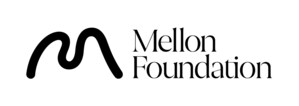The Andrew W. Mellon Foundation Announces Strategic Vision
Emphasizing Continuity and Change, the Foundation's Strategic Plan Affirms Commitment to the Humanities and the Arts, Reconfigures Programs, and Recalibrates Approach to Grantmaking
NEW YORK, Oct. 6, 2014 /PRNewswire-USNewswire/ -- At its September board meeting, The Andrew W. Mellon Foundation's Board of Trustees approved a strategic plan that will guide the Foundation's grantmaking in coming years. The plan establishes four strategic goals and a new programmatic framework, and reaffirms the Foundation's belief that the humanities and the arts are vital to human flourishing and the well-being of diverse and democratic societies.
The Board's action culminated an 18-month planning effort initiated by President Earl Lewis when he took office in March 2013. Reflecting the work of the Foundation's officers, program officers, and staff as well as extensive consultation with the Trustees, the plan will guide the Foundation's philanthropic activity as it approaches its 50th anniversary in 2019.
"The Mellon's commitment to the humanities and the arts and to the institutions nurturing them is the bedrock on which the Foundation stands. We are always open to new opportunities for service and willing to end support for others when that seems best. Periodic reorganization and revitalization of the Foundation's internal workings are part of our life," said W. Taylor Reveley, III, Chairman of the Board. "The Strategic Plan reflects all this. It rests on an abiding commitment to the humanities and the arts, it contemplates promising new avenues for usefulness, and it reflects programmatic restructuring to better accomplish the Foundation's mission."
In articulating his vision for the Foundation's future during the 2013-14 strategic planning process, President Lewis emphasized both continuity—the Foundation's continuing long-term commitment to the humanities and the arts—and change—the imperative to develop grantmaking initiatives attentive to emerging needs and problems.
The Foundation will pursue four strategic goals: (1) grantmaking that is responsive to promising new organizations as well as to established institutions, and attentive to long- as well as short-term challenges in the humanities, the arts, and higher education; (2) deep and broad public understanding of and support for the humanities, arts, diversity, and education; (3) wide participation of previously underrepresented communities in the humanities, the arts, and higher education; and (4) strong collaboration in the philanthropic sector, and among grantees, in support of the humanities and the arts.
The plan also articulates four key themes that extend across the full range of the Foundation's grantmaking: diversity and inclusion, digital media, public arts and humanities, and international collaboration. Grants will be distributed through the Foundation's ongoing programs as well as foundation-wide presidential initiatives, the first two of which will promote the public appreciation of the arts and humanities and sponsor research on the value of diversity in education and other areas.
Strengthened and new emphases within ongoing programs include initiatives that involve humanities scholars in grand challenge questions, support for programs in new media arts, and a global collections initiative to provide access to non-English language resources.
The strategic plan includes several programmatic changes designed to reinforce the coherence of the grantmaking agenda. Notable among them are two substantial consolidations of long-standing programs:
- Art History, Conservation and Museums will merge with Performing Arts to form a single program, Arts and Cultural Heritage;
- Liberal Arts Colleges will merge with Research Universities and Scholarship in the Humanities to form Higher Education and Scholarship in the Humanities.
The three remaining programs will bear names that underscore their refocused core agendas:
- Scholarly Communications and Information Technology will become simply Scholarly Communications;
- The Mellon Mays Undergraduate Fellowship Program, Historically Black Colleges and Universities, and Diversity Initiatives area will be renamed Diversity;
- Special International Emphasis: South Africa will become International Higher Education and Strategic Projects and develop a broadened agenda under the leadership of its recently appointed program director, Saleem Badat, the former vice-chancellor of Rhodes University in South Africa.
More information on The Andrew W. Mellon Foundation Strategic Plan for Programs can be found on the Foundation's website: www.mellon.org.
SOURCE The Andrew W. Mellon Foundation
WANT YOUR COMPANY'S NEWS FEATURED ON PRNEWSWIRE.COM?
Newsrooms &
Influencers
Digital Media
Outlets
Journalists
Opted In





Share this article